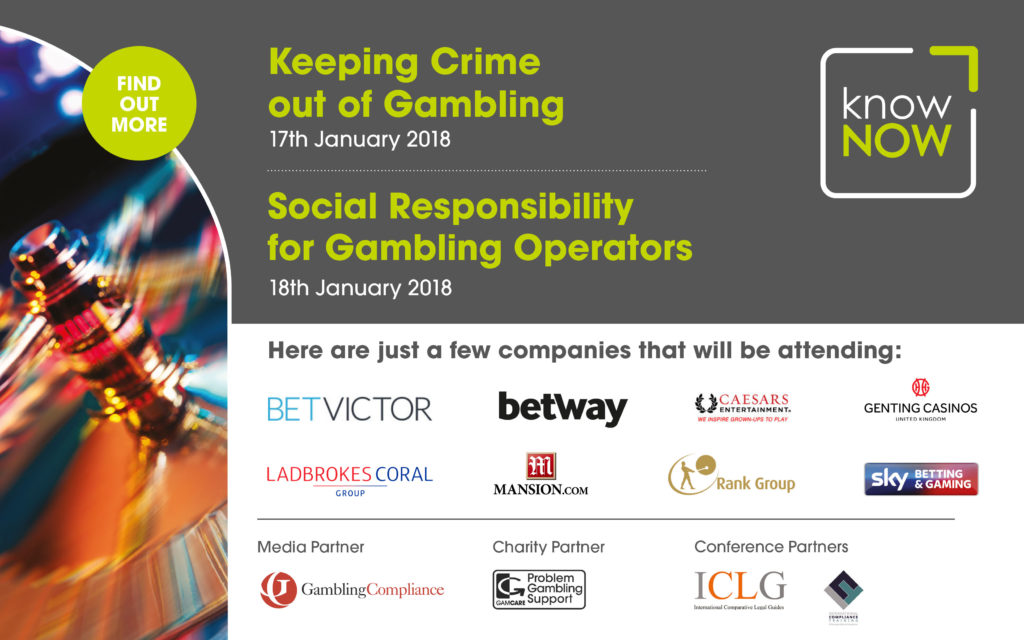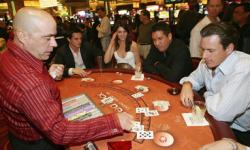No Gambling At Work Policy
- Gambling at work policy is not needed How many times have you placed a bet on a home to win a match, but you haven’t used the same principles when speaking with a partner or a customer? Or maybe you haven’t checked out or thought about historical trends of a customer’s orders to see if their spend is increasing or decreasing.
- Likewise, the creation of on-line gambling allows employees to place bets anytime, anywhere – including from their offices or cubicles. Even though workplace gambling is unlikely to result in criminal investigation or prosecution, employers should not turn a blind eye or otherwise appear to condone any illegal conduct occurring in the workplace.
- “Gambling is not permitted on company property during work hours, during breaks, during lunch periods in the company cafeteria, while traveling on company business, at company functions, or while entertaining clients. “Company facilities may not be used to gamble (examples are given.).
Grooming and Appearance Policy revised 012014 3 J. FACIAL HAIR – MCs may wear beards, goatees and mustaches that are neatly trimmed and no more than ½ inch long. Facial hair must be well kept and fully-grown with no patches. Goatees and beards must be kept trimmed above the neckline (above the Adam’s apple). Sideburns may not pass earlobes.
By Celeste Blackburn
Are your employees gambling at work? With the Super Bowl and NCAA basketball tournaments coming up, it’s almost a sure bet that at least some employees are gambling on sports during company time, using company equipment. Sometimes, employees don’t wait for major sporting event to gamble, instead betting on the Oscars, American Idol, and coworkers’ pregnancy due-date pools. While employees see betting pools as harmless fun, employers can be the big losers due to the drain on productivity and resources as well as the legal issues that go with employees gambling at work.
HR Guide to Employment Law: A Practical Compliance Reference
Productivity takes a time out
In a 2011 Vault survey, 56% of respondents said they spent 30 minutes or less discussing, researching, or making picks for an office betting pool. A few admit to spending considerably more time on office gambling — 4% spent 1-2 hours, 2% spent 2-4 hours, and 1% spent more than 6 hours. Only 63% of survey participants who admitted to gambling at work were willing to reveal how much time they actually spend on it — even in an anonymous survey. A few quotes from survey participants suggest that those in the unaccounted for 37% are spending more time than they want to admit on office pools:
- “I have seen coworkers not do ANY work at all, ALL day long.”
- “Almost no work gets done in the office during March.”
- “Zero office time — that’s stealing.”
Now consider this: In 2007, consulting firm Challenger, Gray & Christmas crunched the numbers (mainly figures about the national employment rate and average pay) and estimated that American employers lose up to $16 million for every minute their employees spend focused on the Super Bowl.
Gambling with team spirit
Some employees, employers, and company leaders see office betting pools as a way to foster camaraderie by giving employees a fun outlet to socialize and interact with one another. In the Vault survey, 78% of participants said it was appropriate to have office betting pools and only 22% disagreed. Elaborating, one survey respondent said, “March Madness is a great team builder, engaging folks from the office, plant floor, shipping/warehouse, remote sales offices, and even a few customers and vendors.”
On the other hand, there are those employees who might agree with the survey participant who complained, “My office is awash in sinners. Some day a real rain will come and these cubicles shall be cleansed.” While all workplace-gambling dissidents may not take such a hard line, it is a safe bet that the time wasted on these betting pools irks employees who don’t participate and instead keep their nose to the grindstone.
Illegal moves
In many states, gambling at work is illegal. For instance, in Kansas it can be a class B misdemeanor. Also, many states have gaming commissions that closely regulate gambling events. In other states, gambling at work resides in very gray legal area. For instance, in Colorado most gambling is illegal but betting pools in the office are an exception to the definition of illegal gambling so long as the pool is “incidental to a bona fide social relationship.”
While it’s true that local law enforcement probably isn’t concerned with an office betting pool, there have been instances to the contrary. Notably, in 2002, a middle manager at AT&T was arrested for allegedly taking a 10 % cut — about $3,000 — from a football office pool in New Jersey. The pool at issue was advertised in office e-mails, and a coworker allegedly turned the employee in to the police. The worker was charged with promoting gambling and faced up to five years in prison. While participants in small office pools with low stakes are unlikely to be arrested, it’s never a good idea for a company to condone criminal activity of any kind in the workplace.
Also, there have been several cases in which an employee sued an employer, trying to hold it liable for financial losses. Basically, the employees claimed that employer-approved office betting pools were unavoidable and triggered them to relapse in their gambling addictions, which caused them to lose money.
Could March Madness be a disability?
The National Council on Problem Gambling estimates that two million American adults are pathological gamblers and another four million to eight million qualify as “problem gamblers.” Given the expanded definition of “disability” under the Americans with Disabilities Act (ADA), those numbers should give employers a reason to pause and wonder if gambling addiction could be considered a disability.
The short answer is “no.” Congress expressly excluded compulsive gambling, along with kleptomania, pyromania, and various psychological disorders resulting from current drug use, from the ADA’s definition of “disability.” However, there is still room for concern. Employees who are addicted to gambling are more likely to borrow money from coworkers, be distracted from their work, and have attendance problems.
ADA Compliance : Practical Solutions for HR

No Gambling Policy At Work
Best offense is a good policy (defense)
Depending on the laws of the state, an organization that chooses to allow gambling at work should specifically define what is and isn’t acceptable in a policy. An organization that chooses to prohibit gambling at work should adopt a strong policy and stick to it. Here are several points to consider when writing a gambling policy:
- Define gambling or the type of behavior that is restricted.
- If gambling is illegal in the state, emphasize that point.
- Communicate that gambling can be a problem for employee productivity and morale.
Once the policy is in place, it should be distributed to all employees and included in the company handbook. Only 10% of the Vault survey respondents said their employers had a policy on betting pools; 43% said there was no policy; 47% weren’t sure.
One participant’s response shows that even when employees know about the policy, gambling often still goes on, “It is not tolerated . . . so you have to do it secretly.” In that case, employers should be prepared to discipline all violators (at least one case taken to the federal level hinged on an employee’s claim that he was disciplined for gambling while others of different races were not). The gambling policy also should be coordinated with the organization’s discipline program, carving out specific behaviors that are subject to discipline and termination.

Game over
Allowing gambling at work — by virtue of not having a policy, not enforcing the policy, promoting gambling, or just ignoring it — leaves an organization open to hits from all sides. Therefore, if gambling at work isn’t banned altogether, it should be approached cautiously and thoughtfully.
This increase in the availability and accessibility of online gambling means gambling in the workplace, and during working hours, is now more possible than ever. This phenomenon is making businesses more vulnerable to issues arising from gambling.
Do your employees gamble at work?
If this question has not occurred to you it probably should according to experts who are concerned about the impact changes in the gambling environment could be having on your workplace.

Experts say with today's smart phones and tablets, punters can bet 24 hours a day, 7 days a week, from home, 'on the go' and yes, even from work.
And with an estimated one in 100 employees likely to have a gambling problem there is no room for any employer to assume it can't happen to them.
Why should this matter to HR practitioners?
Most of the time gambling is a harmless recreational activity and most workplaces organise social gambling activities like footy tipping and Melbourne Cup sweeps but the changing face of gambling can mean it's becoming more of an issue for workplaces.
Today, employees might be using workplace computers, or company provided tablets and smart phones to gamble.
Whether an employer knows employees are gambling, or even sanctions it, may be a moot point but it might also form the basis for legal action against an employer according to a senior associate in workplace law.
Joel Zyngier, a senior associate with Holding Redlich specialising in workplace law says employers should assume gambling is taking place in their workplace, and take steps to avoid it becoming a problem.
How can out of control gambling affect a workplace?
No Gambling At Work Policy 2019
There are three ways out of control gambling can have an impact on the workplace including: reducing productivity, increasing absence, theft and fraud.
For example:
- An employee who gambles during working hours, using their smart phone to place bets or play online poker, is not focused on work and is not using work time effectively.
- An employee who develops a gambling problem and gambles outside of work hours, for instance on the pokies, may be absent from work more often, taking extended lunch breaks to gamble or even missing parts of or full work days.
- An employee who has a problem with gambling and has access to company finances, may abuse their position in the workplace to fund their gambling addiction. Importantly, those who have done this and been caught are often found to have behaved completely out of character but a study of major court cases between 20082010 identified over $77 million lost, with employers the biggest victims of gambling related crime.
What can employers do?
Every employer in Victoria has a duty of care under the Occupational Health and Safety Act to provide and maintain a working environment that is safe and without risks to health – both physical and psychological health. But what does this mean in the context of gambling?

According to the American Psychiatric Association's Diagnostic and Statistical Manual of Mental Disorders, a gambling disorder is a behavioural addiction which can result in psychological harm. This psychological harm represents a health and safety risk to employees, creating an obligation on employers to address gambling in the workplace.
No Gambling At Work Policy Texas
To fulfil their duty of care, an employer should eliminate or reduce the likelihood of problem or risky gambling at work, as much as possible.
It makes sense to protect the workplace and the employer against potential legal action, as well as to protect the workplace and employees against the negative impacts outlined above.
Four things HR practitioners can do to reduce the impact of gambling at work?
When addressing gambling in the workplace, HR practitioners can
No Gambling At Work Policy 2020
- Assess the risk. For example, use of workplace computers and digital devices for gambling.
- Adopt a preventative approach by distributing responsible gambling information to all employees.
- Communicate with employees about responsible gambling and provide information about help and support options available.
- Adopt a workplace policy on gambling. This policy should outline what is considered acceptable in the workplace for example: permitting social gambling activities like footy tipping but prohibiting the use of workplace equipment to access online gambling sites.
No Gambling At Work Policy Template
The policy may be similar to those already developed for the use of drugs and alcohol in the workplace and should be informed by the particular circumstances of each individual workplace.